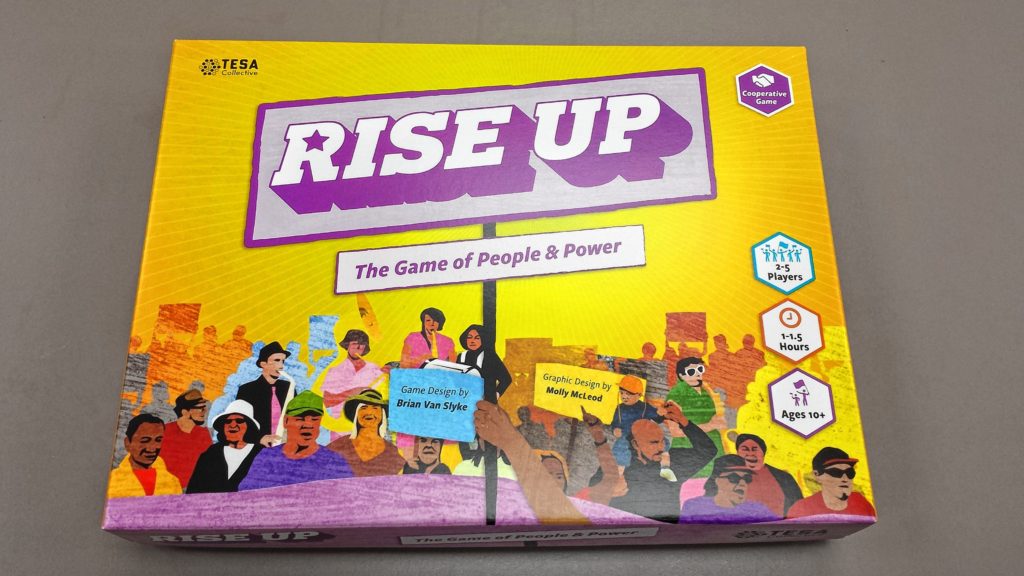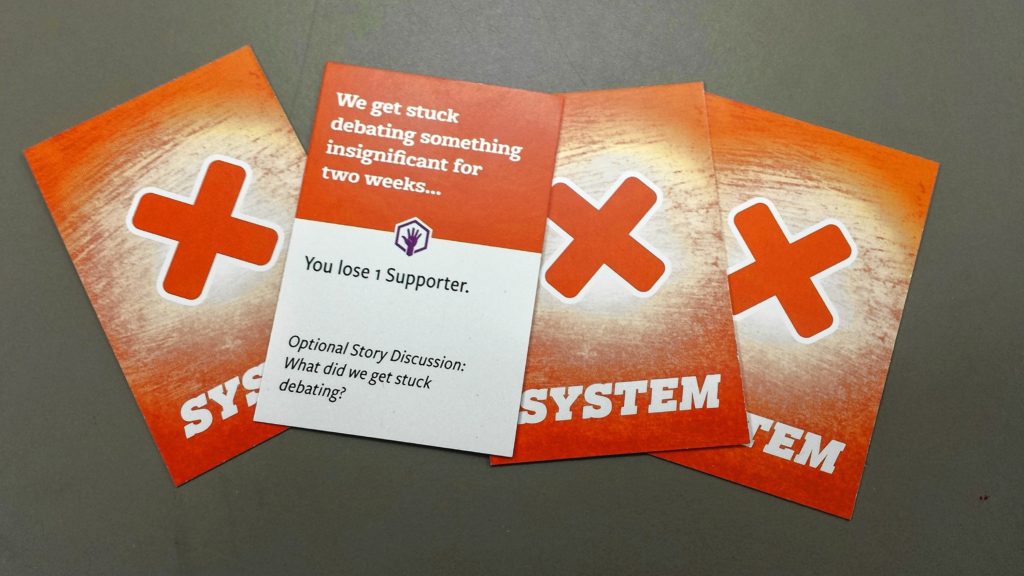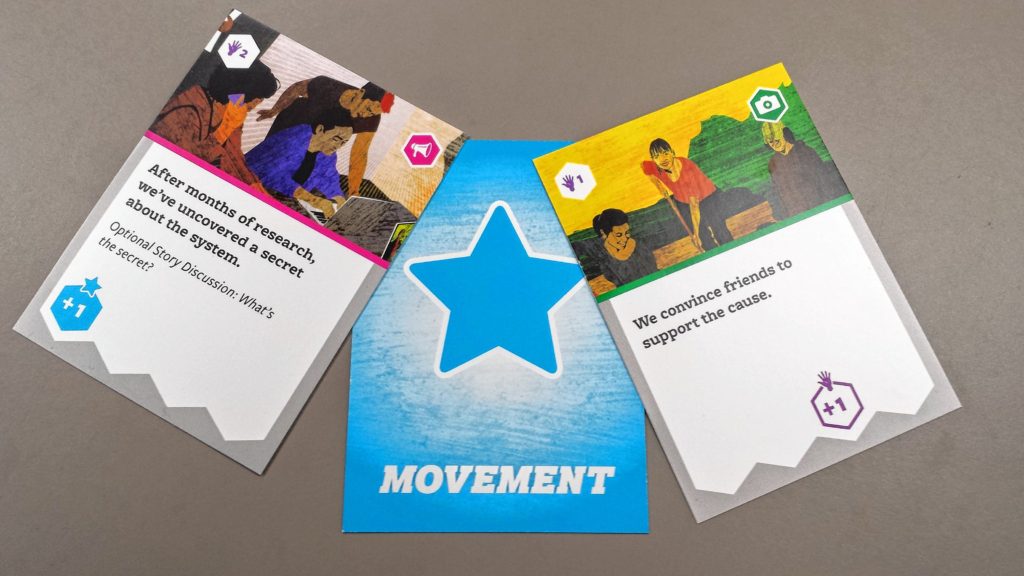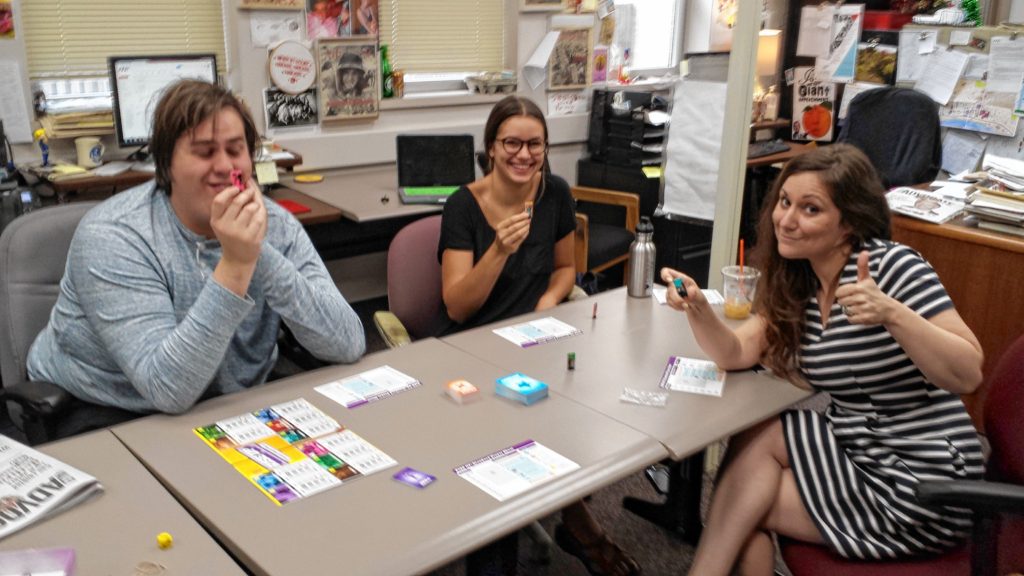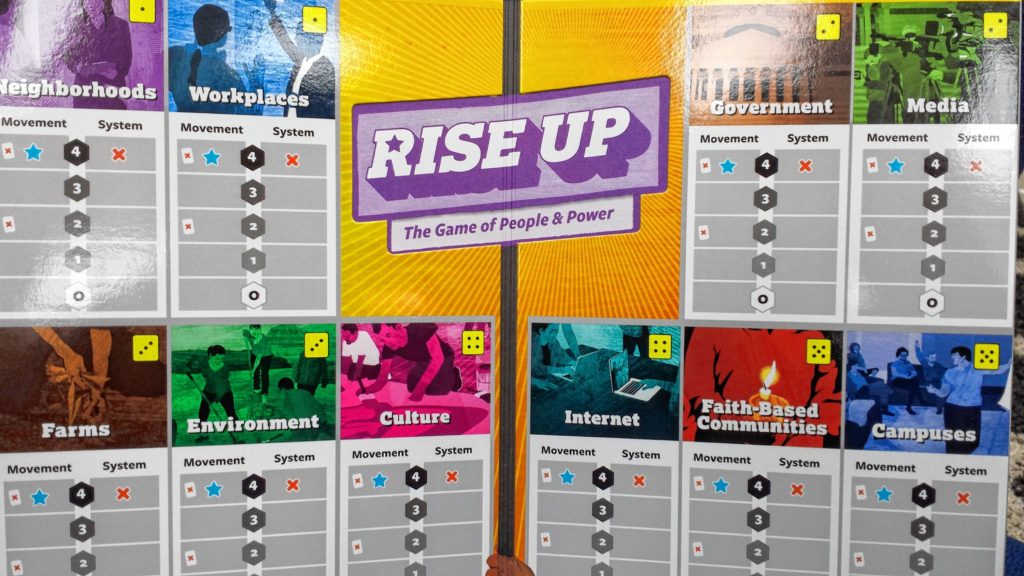What do you do when the state of the world makes you so angry and/or demoralized that you don’t even want to leave the house? A new board game called Rise Up: The Game of People & Power, and created by former Hampshire College students, is the answer!
Rise Up is a collaborative board game in which you and your fellow players are activists fighting against “the system.”
So, of course, the Advocate had to play!
Before the game begins, players make up what cause their movement supports. We chose environmentalism, but as the instructions point out, you could pick anything you want, like “dragons’ rights.”
Rise Up is beautifully illustrated. Molly McLeod, a Hampshire College alumna, was the graphic designer, and the illustrations were done by Innosanto Nagaro, author and illustrator of the children’s book A is for Activist. The cover features an image of a diverse group of marchers, some chanting, others playing instruments.
The game pieces themselves were produced by a worker-owned cooperative and printed on sustainable materials. That was important to game designer Brian Van Slyke and his organization called the TESA (Toolbox for Education and Social Action) collective.
We laid out the board and placed our game pieces. The board consists of 10 arenas in which your movement vies for control against the system — neighborhoods, workplaces, government, media, farms, environment, culture, internet, faith-based communities, and campuses. If your movement gains control of five of them, you win, but if the system snatches up four, you all lose (the deck is stacked in favor of the system, after all).
The educational possibilities of this game jump right out at a player. Someone new to activism might not think about the possibilities of visiting farms, working with faith-based communities, or spreading the word around workplaces.
The rules are mostly straightforward. Each player has a fluctuating number of “supporters” and how many you have determines what you can do. Supporters let you move, play cards, and use special skills unique to each player.
The system also has its own tricks. At the start of each player’s turn, a roll of a die determines where the system gains power. At the end of each turn, the player draws a “System” card, and usually something bad happens.
Our movement began modestly. Editor-in-Chief Kristin Palpini played the card “We convince friends to support the cause.” Everyone got a supporter. But the system came back with its own card: “We get stuck debating something insignificant for two weeks …” (a situation with which I’m sure any activist can relate). Our supporters — and standing on the board — deteriorated.
Despite the setbacks, the Advocate scored first! We gained one of the five victories we needed in “neighborhoods” after staff writer Chris Goudreau played the card “We organize a massive march!” The triumph was short-lived, however. The system scored a victory of its own on “campuses,” of all places. Come on students — this is your future here!
Some of the cards offer a chance to create a storyline about your movement. One such card read, “After months of research, we’ve uncovered a secret about the system,” Then, “What’s the secret?”
“The system was breeding turtles to wander out into the roads and slow down traffic, which would release more CO2 into the atmosphere,” Chris said.
The next card read, “We get thousands of people to call a representative of the system and demand change.” For my part of the story, I said we encouraged callers by offering them free rescued turtles.
In the end, it came down to one die roll. Whoever scored the next victory — us or the system — would win. Intern Christin Howard rolled a safe number, then played “A video about our movement goes viral.” We got our victory!
Take that, The System!
There were a couple of drawbacks with the game. The main deck is called the “Movement Deck,” which created confusion as to whether someone was “moving” or playing a “movement card.” (It’s already confusing enough around here with people named Kristin, Christin, and Chris). Chris, a fan of the game Risk in which armies clash, also had hoped there would be more direct conflict with the system.
The game is definitely a fun educational tool. Each card is unique and offers players ideas on how to make their activism more effective. I felt like I learned about a dozen techniques. Mostly, it is nice to be playing a game where everyone is working together.
Rise Up is now available at store.toolboxfored.org/rise-up/ for $45.

